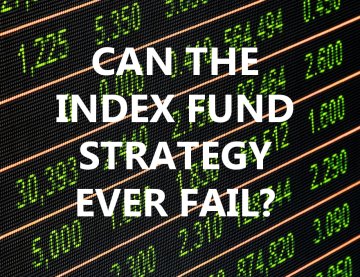Can the Index Fund Investment Strategy Ever Fail?
Unless you have been living under a rock you have probably read about Warren Buffett’s advice to his wife about what to do with her money once he is gone: invest it in Standard & Poor 500 index funds and live off the interest. This is great financial advice and a lot of people are taking advantage of it. But what are the downsides to following Buffett’s strategy now?

Imagine a world where more than half of all Standard & Poor 500 companies’ stocks are owned by index funds. These are automated funds with low, minimum management fees. They are run on autopilot. You will hear about these funds under the name “ETFs” or Exchange Traded Funds.
If most investment capital comes into these companies through index funds, who will sit on their boards of directors? Who will make the major decisions that boards of directors are expected to make?
The index fund owners are brokerages that normally manage huge funds anyway. Maybe they’ll appoint or vote for board members who do right by investors but the small investors will be giving an inordinate amount of controlling authority to index funds without managers.
No one knows what the long-term effects of such investment patterns will be. Economists are only just now beginning to think about the implications of everyone following Warren Buffett’s advice. If S&P 500 index funds really outperform most of the market then you would be crazy not to invest in them.
And so what happens to the companies outside the S&P 500? Where will their investment money flow from, if not through stock purchases? Even the human-managed mutual funds that create their own indexes will have to reconsider their strategies if the inflow of capital drops below a certain hypothetical threshold.
We are still a long way from seeing what that world will be like. Today maybe 20-25% of US stock investments are made in index funds but that is still a huge percentage compared to where things were just a few years ago when Buffett made his famous statement. The investing world has been listening when Warren Buffett talks, and there is no doubt that the money is following his path of wisdom.
So the question is, just how long will that remain a wise path to follow?